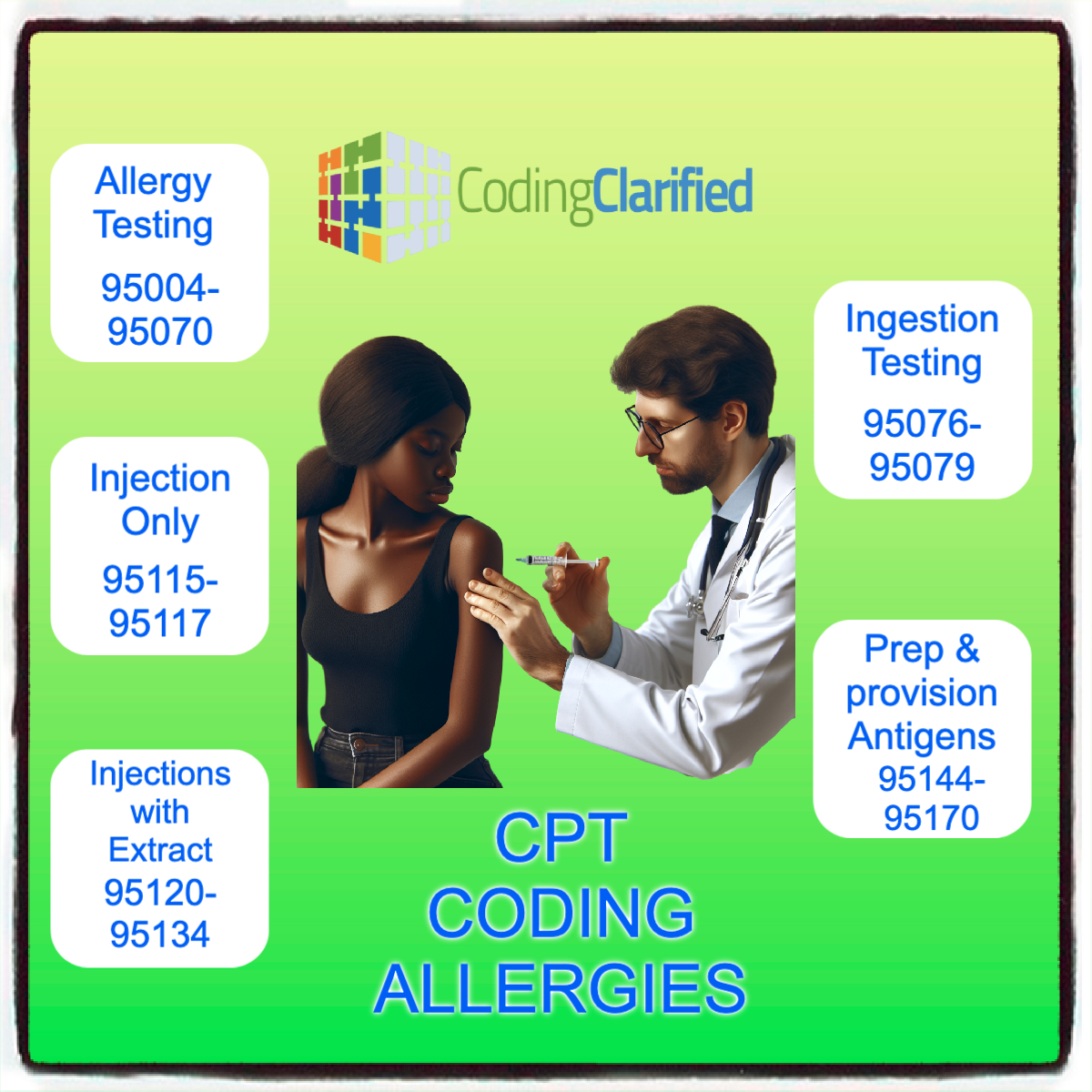What is CPT Allergy Coding?
Allergies are prevalent health concerns affecting millions of individuals worldwide. Proper diagnosis and management of allergies require precise documentation and accurate coding to ensure optimal patient care and reimbursement. This article serves as a comprehensive guide to understanding Current Procedural Terminology (CPT) coding for allergy-related services, equipping healthcare providers with the knowledge needed to navigate the complexities of medical coding for allergies effectively.
Understanding Diagnosis and Management
Allergic reactions occur when the immune system overreacts to substances known as allergens, triggering symptoms ranging from mild discomfort to life-threatening anaphylaxis. Diagnosis and management of allergies involve various clinical services and procedures, including:
- Allergy Testing: Diagnostic tests such as skin prick tests, intradermal tests, and blood tests (e.g., IgE antibody tests) help identify specific allergens triggering allergic reactions in patients.
- Allergy Immunotherapy: Immunotherapy, including allergy shots and sublingual immunotherapy (SLIT), aims to desensitize patients to allergens by gradually exposing them to increasing doses of the allergen.
- Allergy Consultations: Allergy specialists provide comprehensive evaluations and consultations for patients with allergic conditions, offering personalized treatment plans and management strategies.
Key Components of Allergy Coding
Coding for allergy-related services involves several key components that influence the selection of CPT codes:
- Type of Allergy Test: Different types of allergy tests, such as skin testing and blood testing, require specific CPT codes for accurate billing. Providers must document the type of test performed and the allergens tested to ensure proper coding.
- Number of Allergens Tested: The number of allergens tested during allergy testing procedures impacts the selection of CPT codes. Providers should document each allergen tested to reflect the complexity of the service accurately.
- Modifier Usage: Modifiers may be necessary to indicate additional information, such as the use of different methodologies or the provision of multiple allergy testing services during the same encounter. Proper modifier usage helps clarify the nature of the services rendered and prevent coding errors.
What are common CPT codes for allergies?
Several CPT codes are commonly used for billing allergy-related services, including:
- 95004: Percutaneous Tests (e.g., prick or puncture tests) with allergenic extracts, immediate type reaction, including test interpretation and report by a physician, specify number of tests
- 95024: Intracutaneous (intradermal) tests with allergenic extracts, immediate type reaction, including test interpretation and report by a physician, specify number of tests
- 86003: Allergen specific IgE, quantitative or semi-quantitative, each allergen
- 95165: Professional services for the supervision of preparation and provision of antigens for allergen immunotherapy (e.g., extracts), single or multiple antigens (specify number of doses)
- 95144: Professional services for the supervision of preparation and provision of antigens for sublingual immunotherapy, single or multiple antigens (specify number of doses)
Conclusion
Accurate CPT coding for allergy-related services is essential for effective patient care, reimbursement, and compliance with healthcare regulations. By understanding the key components of allergy coding and adhering to coding guidelines, healthcare providers can ensure that allergy-related services are appropriately documented and billed. Thorough documentation of allergy testing procedures, immunotherapy services, and allergy consultations is critical for achieving coding accuracy and facilitating optimal patient outcomes in allergy management.
For those looking to deepen their expertise in coding, consider pursuing a medical coding certification. Certification can enhance your skills, increase your job opportunities, and ensure you stay updated with the latest coding standards and practices.
Explore our expert resources on Medical Coding:
Understanding the Significance of HCC Coding in Healthcare
The ABC’s of Medical Coding
Mastering the AAPC CPC Exam: A Comprehensive Guide

